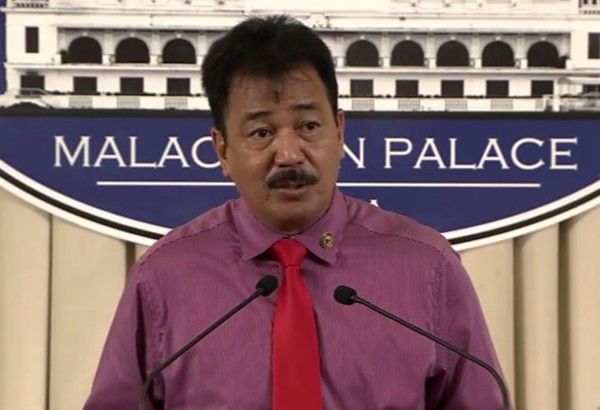CHED panel to define academic freedom, security sector role in campus life

MANILA, Philippines — The Commission on Higher Education will convene experts to define academic freedom as rights groups and lawmakers raise concerns of increased police and military operations and shrinking democratic spaces on campuses.
In a statement on Thursday, CHED Chair J. Prospero De Vera III also called for sobriety over the defense department's scrapping of an agreement with the University of the Philippines requiring security forces to coordinate with UP officials on operations in its campuses. In ending the accord, Defense Secretary Delfin Lorenzana claimed UP had become a haven for enemies of the state.
De Vera said the Panel of Education Experts will "define the meaning of academic freedom and the role of security forces in the protection of academic freedom and the welfare of students." He said he hopes that this will help move discussions on the issue between UP and the defense department forward.
"Courts have long drawn and placed judicial tests and standards to protect free speech and academic freedom, and we can be guided by them. Narrowly tailoring regulation to allow the fullest articulation of speech while allowing the protection of compelling state interest is a balanced standard that we all can be guided with to bring out what is common interest to all, and not on those where we differ," he said.
De Vera, a former UP official and member of its faculty, said the UP-DND Accord "was destined to be problematic" because it had no clear guidelines and because a Joint Monitoring Group of UP and security sector officials "has not met regularly to determine compliance with the agreement, review alleged violations, determine appropriate penalties, and recommend revisions in the Accord given the changing times."
In a letter to Lorenzana, UP president Danilo Concepcion said the agreement was meant "to protect the climate of academic freedom—guaranteed by the Constitution—that makes intellectual inquiry and human and social advancement possible" and to "maintain UP as a safe haven for all beliefs and forms of democratic expression."
"Indeed UP has bred rebels and nonconformists—as well as it has bred presidents, senators, congressmen, and business, civic, and even military leaders. All the world’s great universities have produced the same range of thinkers and doers," he also said.
"By and large, intellectual and political dissidents in UP have always been in the minority, but it is a critical minority that has historically been vital to the maintenance of a healthy democracy."
De Vera said Thursday that CHED is calling on "everyone concerned to jointly discuss the issues especially when everyone have the same goals of student protection, academic freedom and promotion of education – all embodied in no less than the Constitution itself."
RELATED: UP under surveillance even while accord was in place, general confirms
The scrapping of the accord, which the defense department announced without consultation with the university, was met with protests in campuses and online. It has also prompted members of Congress to file resolutions as well as bills to include the provisions of the accord in UP's charter.
Amid criticism that limiting military and police access to UP is special treatment, Rep. Jose Christopher Belmonte (Quezon City) has filed a bill to declare all state universities and campuses as "freedom spaces where academic freedom is guaranteed."
Students of the Polytehnic University of the Philippines, which is covered by an agreement similar to UP's, have raised concerns that theirs will be cancelled next as the Duterte Youth party-list has called for.
The Commission on Human Rights earlier this week said that intellectual discourse — including talk critical of the government — in schools is not a threat that would justify curtailing rights like academic freedom.
"Although some quarters may deem it alarmist, it is now legitimate to ask if the government, through the military (not police), is contemplating the suppression of civil and political rights, including academic freedom, within the university. Otherwise, why threaten the university with the symbolic act of repudiating the said accord?" it said.
De Vera and presidential spokesperson Harry Roque offered their offices as a venue for further talks between UP and the defense department, although Lorenzana has said that this will only happen if the university can explain why some — he had a list of 17 names — students and alumni of the 113-year-old university were reportedly killed in counter-insurgency operations.
- Latest
- Trending
































